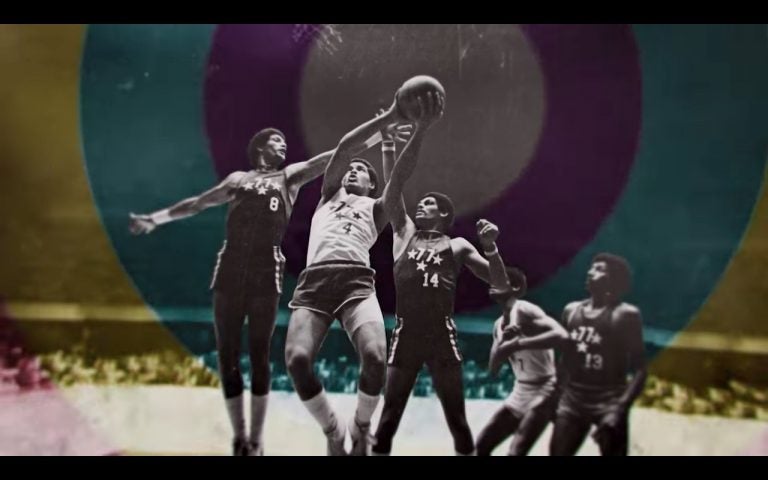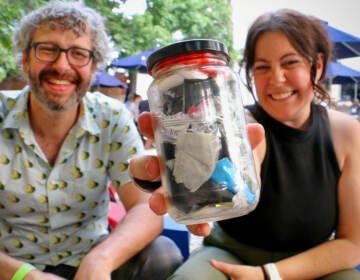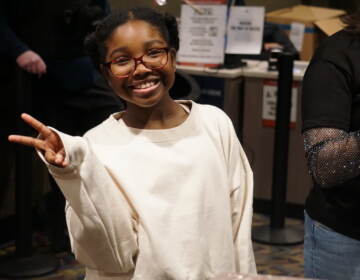Philly Latino Film Festival dives beyond the headlines – June 1 – 3, 2018
The films at this year's festival attempt to open discussion both on- and offscreen.

A still from the documentary "Nuyorican Básquet," which follows the 1979 Puerto Rican national basketball team. Directed by Ricardo Olivero Lora and Julio Cesar, it will be making its Philadelphia premiere this weekend.
The lineup at the Philly Latino Film Festival doesn’t always feel like it’s ripped straight from the headlines. In the past, the festival, now in its seventh year, has focused on dramas and comedies.
But in 2018, it seems inevitable that the movies screening this weekend will remain grounded in reality. Of the seven feature films, five are documentaries, and nearly all touch on themes that have dominated the news, including undocumented students, Hurricane Maria, and the complicated fractures it exposed in the relationship between Puerto Rico and the mainland United States.
“At the core of our content is, how do we use film as a vehicle for social change,” said festival director Marangeli Mejia-Rabell. “We’re focusing on universal experiences that everyone can relate [to], but then also bringing some historical context that then enables some awareness and education and opens the opportunity for healthy dialogue between people of different communities.”
This year’s films include “Nuyorican Básquet,” a documentary about Puerto Rico’s 1979 national basketball team. Many of its players were born and raised in New York, part of the Puerto Rican diaspora. With slam dunks and theatrical moves, the team reinvigorated basketball on the island. But when it came time to pick players for the 1980 Summer Olympics — which the U.S. boycotted — the New York-born players weren’t considered. Layered with themes of identity, immigration, and politics, it’s a film about much more than basketball.
And it’s not the only film this weekend to focus on Puerto Rico. There’s “La Perla After Maria,” a short documentary about one town recovering from the hurricane. “Ser Grande” follows three Puerto Rican teenagers from very different backgrounds who agree to participate in a leadership workshop.
Dialogue will also take place off screen. In the face of recent threats to Latinx communities, “we’re opening ourselves more intentionally to being as multidisciplinary as we can,” said Mejia-Rabell.
To do so, the festival has partnered with the artists behind “Extension of Communication: Puerto Rico,” an evolving exhibit of artworks and provocations drawn from a visit to the island post-Maria. Artists Grimaldi Baez, Ricky Yanas, and Sheldon Abba looked for people engaged in peer-to-peer relief efforts, outside the official channels, and found ways to support them. And they brought back items and images they’ve exhibited here in Philly. They’ll have an installation at City Hall for the film festival’s opening night on Friday.
Throughout the weekend, there are also films about musical revolutionaries, a massacre at the Colombian-Venezuelan border, and a biopic of Ruben Blades, revered Salsa musician, actor, and lawyer. Showcases of short films, many by local and youth filmmakers, are happening as well.
Cuba also features prominently in two films: the documentaries “Conexiones,” about a visit to the island by a group of Mexican-American musicians, and “When the Spirits Dance Mambo,” which traces Cuba’s connection to West African spiritual traditions.
Of all the films screening this weekend, “Mambo” is the only one not making its Philadelphia premiere. Mejia-Rabell said that’s part of what makes hosting festivals like this so important.
“This festival creates that space to see content that would otherwise be limited to New York, LA, Chicago,” she said. “It is part of the work of the festival, to raise the profile of the city, and show that we have audiences that are hungry for this content.”
This article is part of a new effort recommending things to do in the Philly region. Tell us what you think.
WHYY is your source for fact-based, in-depth journalism and information. As a nonprofit organization, we rely on financial support from readers like you. Please give today.





